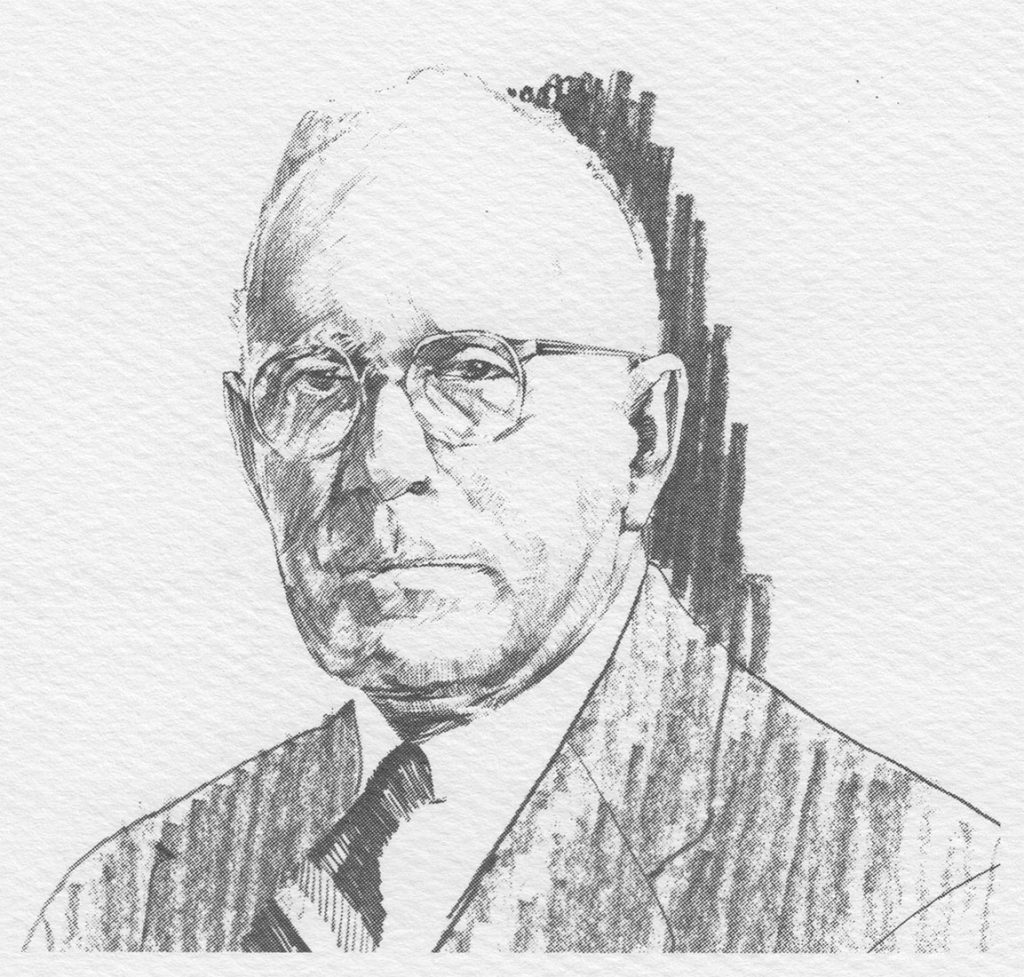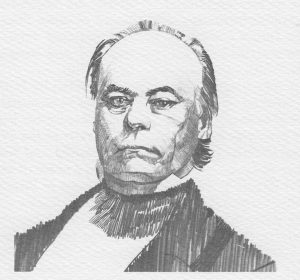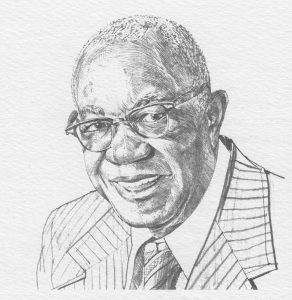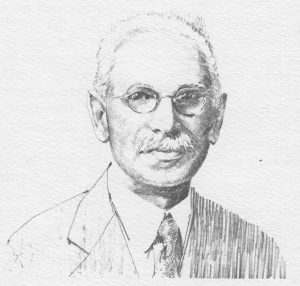In the art of enlightened leadership, Donald Comer had few peers.
When he died at the age of 85, newspapers editorials throughout the region – and many in other parts of the country – paid tribute to him as a premier textile industrialist and a leader in civic, religious, and political affairs.
Most importantly, though, they paid tribute to Donald Comer the man, the gentle humanitarian who could look at every problem from the other fellow’s point of view. Following his personal motto, “Live and Help Live,” he became not only one of the nation’s most respected industry leaders, but one of the most affectionately regarded Southern businessmen of his time.
The facts of his life tell the story: He was born into a distinguished Barbour County family in 1877, the third of nine children of Braxton Bragg and Eva Jane Harris Comer. In such a large family, young Comer learned early the importance of “consideration of others.” Undoubtedly, he also learned the principles and responsibilities of leadership, for his father, Braxton Bragg Comer, understood these concepts well. Governor of the state from 1907 to 1911, the elder Comer established himself as one of Alabama’s most progressive statesmen. His far-reaching educational policies, in particular, benefited the state’s entire educational system and made possible, among many other things, the first construction at The University of Alabama in twenty years.
After serving four years in the Philippines as a first lieutenant in the Army, Donald Comer, as he was known all his life, married Gertrude Miller of Reading, Pennsylvania, and in 1903, he joined his brother Fletcher in managing the family’s 30,000-acre plantation in South Alabama. When his father became governor in 1907, Donald Comer moved with his growing family to Birmingham to manage Avondale Mills, the thriving textile industry that his father had founded ten years earlier. Here Donald Comer spent his life, becoming president in 1927, chairman of the board in 1935, and chairman of the executive committee in 1951. During the more than half a century he devoted to Avondale Mills, Comer helped develop it into one of the largest textile chains in the country and one of the nation’s leaders in employee-management relations.
Soon after he joined the industry, Donald Comer began finding ways to improve the lives of his workers-an an activity he would continue throughout his life. He started a Boy Scout troop for the children of mill employees that expanded over the years until there were more than fifty such troops in Avondale Mills towns; he built schools for children and adults; he established a Home Loan Association and sold village houses at low prices with low payments (by 1963 more than 85 percent of Avondale’s employees were homeowners). Concerned about opportunities available to his employees in their leisure time, Comer hired music teachers, provided instruments, and started an employees’ band; he began “Cotton Crafts” clubs for retired workers; and once, while vacationing in Atlantic City, he decided that every family working for him ought to have a chance to enjoy the beach, so he built a camp in Florida and took the first busload of mill families down for what became a yearly vacation.
In 1938, Donald Comer began one of the nation’s first profit-sharing plans. By 1941 the program was in effect in all the company’s plants with employees drawing profit-sharing checks amounting to forty percent of their base pay in some years. Comer saw it as a good investment. ‘This isn’t profit-sharing,” he once said, “it’s a partnership with people.”
Mr. Comer created “partnerships with people” in his other business dealings as well. He had the capacity, the Birmingham News noted, “to discuss cotton with an eye and a heart for the cotton farmer, the man who planted and picked the cotton, the ginner, the warehouseman and all who touched it…Donald Comer had a way of seeing everybody’s problem and wanting them all to come out well.”
A number of the problems Comer saw and – helped to solve – were nationwide. In the 1930s he worked to strengthen child labor laws and to bring into line cotton firms paying less than the minimum wage As President of the American Cotton Manufacturers Association, he fought to protect the industry from the influx of unrestricted Japanese imports and served on a U.S. mission to Japan that resulted in the establishment of voluntary quotas by the Japanese. During World War II, he served on the National Defense Advisory Commission and the War Labor Board, and in 1948, he returned to Japan at the request of General Douglas MacArthur to assist the Japanese in rebuilding their war-shattered textile industry.
Concerned about the high level of unemployment in Alabama, Comer led the movement to convert war plants in Talladega County to peacetime uses, and he worked tirelessly toward the establishment of the Coosa River Newsprint Company. In 1942, he joined with many others in creating the Southern Research Institute, which he served as a trustee for the rest of his life.
Devoting much of his time to civic and religious activities, Comer was a member of the Board of Stewards of Birmingham’s First Methodist Church. He served on the Laymen’s National Committee of the American Bible Society; he was on the board of the Y.M.C.A. for more than half his life; and for many years, he was chairman of the National Conference of Christians and Jews.
Donald Comer’s unstinting contributions to the lives of others were recognized repeatedly during his lifetime. In 1944 he was awarded an honorary doctorate by Birmingham Southern College; in 1947 Dixie Business Magazine named him the “South’s Man of the Year”; and in 1952, the citizens of Sylacauga held a “Donald Comer Day” celebration that was attended by more than 12,000 people. The Society for the Advancement of Management presented him its National Human Relations Award for 1953, and in 1961, B’nai B’rith of Birmingham bestowed on him its humanitarian award.
Still working five or six days a week after he reached the age of 80, Mr. Comer never stopped pursuing his many interests, and he never failed to keep in touch with the people who worked for him. Long before he died in 1963, it was clear that his life-long “partnership with people” had been an unquestioned success. He was, as one of his many eulogists put it, “an outstanding example of the social-consciousness of American businessmen, one of the bright distinguishing marks of the modern-day free enterprise system.”
But Donald Comer’s deeds speak for themselves. As another eulogist wrote, “His life represents its own memorial wreath, and it is and was a lovely green accomplishment.”




